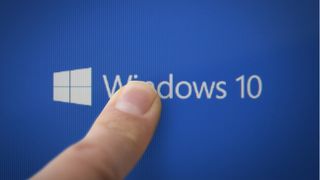Windows 10 could see big changes as Microsoft officially launches Project Reunion
The new initiative will enable developers to write facelifted, feature-rich apps.

With the first release of Project Union, Windows developers will finally be able to easily write apps that offer the newest Windows 10 features.
Microsoft first announced Project Reunion at its Build 2020 conference, with CEO Satya Nadella describing Project Union as the company's latest initiative to make app development easier for Windows 10.
With the launch of v0.1 preview, Microsoft is finally putting that plan into action. In essence, Project Union is a set of software tools that will bridge the gap between the two main application protocol interfaces (APIs) that Windows developers use for writing apps.
- Here are the best Windows 10 deals in December 2020
- These are the best Windows 10 laptops
- We've built a list of the best business computers available
Developer plumbing
Microsoft will be developing Project Union on GitHub under the MIT license. “Project Reunion is our vision for unifying and evolving the Windows developer platform to make it easier to build great apps that work across all the Windows 10 versions and devices people use,” describe the developers on GitHub.
The need for Project Reunion arose because the newest Windows 10 builds use the Universal Windows Platform (UWP) API to access the latest features, which aren't available on older versions of Windows 10. At the same time, the legacy Win32 API, with fewer features, works on every Windows 10 system.
Unsurprisingly, a majority of app developers choose to work with the Win32 API for greater reach. However, this prevented them from taking advantage of Microsoft's newest developments.
With Project Reunion, app developers will now have unified access to both the Win32 and UWP APIs.
Are you a pro? Subscribe to our newsletter
Sign up to the TechRadar Pro newsletter to get all the top news, opinion, features and guidance your business needs to succeed!
The limited preview lays the foundation for Project Reunion’s runtime distribution and also gives developers a chance to look at some of the work Microsoft has done to help them roll Project Reunion in their development toolchain.
- Here's our list of the best mobile workstations
Via: ZDNet
With almost two decades of writing and reporting on Linux, Mayank Sharma would like everyone to think he’s TechRadar Pro’s expert on the topic. Of course, he’s just as interested in other computing topics, particularly cybersecurity, cloud, containers, and coding.

